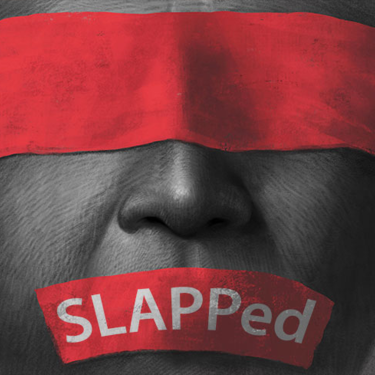Protecting journalists against SLAPPs : a promising European directive, but Member States must be ambitious when transposing it

Reporters Without Borders (RSF) welcomes the agreement reached between the European Parliament and Council of the European Union on a proposed anti-SLAPP directive protecting journalists against abusive lawsuits designed to silence them, and urges EU member states to now rise to the challenge and transpose this ambitious text into national law.
The agreement on the directive on gag suits, also known as Strategic Lawsuits Against Public Participation (SLAPPs), that European Parliament and Council of the EU negotiators reached on 30 November was endorsed by ambassadors from EU member states on 18 December. It represents a major advance in the fight against legal proceedings designed to intimidate and silence journalists.
The directive establishes procedural safeguards which, while respecting the fundamental right of access to justice, make it possible for courts to quickly reject “manifestly unfounded” lawsuits, penalise those who file them, and deter others from doing the same.
The directive says victims of SLAPPs can be compensated for damages suffered and courts may require the plaintiff to cover all costs of the proceedings, including legal representation for the defendant. Courts will also be able to impose “effective, proportionate and dissuasive penalties” on plaintiffs.
Under the directive, SLAPPs victims will have access to complete information on assistance measures, including financial, legal and psychological measures, via a dedicated information centre.
Finally, EU member states are instructed not to recognise decisions rendered by courts in non-EU countries in SLAPPs against persons or organisations domiciled in the EU.
The latter will be able to turn to courts in their own country to seek compensation for costs and related damages for such SLAPPs.
“With this directive, the European Union is demonstrating its desire to protect journalists against those who seek to use the courts to silence them. However, for journalists to be fully protected, it is essential that member states extend the Directive’s procedural guarantees to criminal proceedings and national cases. The scope of this directive is therefore now in the hands of the member states. We ask them to act responsibly. Such measures are essential so that journalists can continue to work, to shed light on the actions of those in powerful economic or political positions who abuse SLAPPs, and to shed light on what they want to hide. This is all the more essential as it ultimately means protecting everyone’s right to information.
The directive contains two significant limitations that are inherent to the distribution of powers between the EU and the member states. The directive does not apply to strictly national cases or to criminal complaints. This represents a significant number of SLAPPs, particularly in France where defamation is a criminal offence.
However, member states may decide to apply the directive's measures to national cases and criminal cases when transposing it into national law. They will have two years to do this, once the directive has been formally adopted by the European Parliament and the Council of the EU.
Journalists are subjected to arbitrary lawsuits of this kind with increasing frequency. When Maltese journalist Daphne Caruana Galizia was murdered in October 2017, she had 47 lawsuits pending against her, especially defamation proceedings. A report by the Coalition Against SLAPPs in Europe (CASE) in July 2023 identified Poland as the European country with the most SLAPPs. One of Poland's biggest daily newspapers, Gazeta Wyborcza, is currently threatened by dozens of lawsuits, especially by members of the former ruling party, PiS.
- Europe - Central Asia
- France
- Portugal
- Spain
- Belgium
- Luxembourg
- Germany
- Austria
- Poland
- Slovakia
- Slovenia
- Hungary
- Romania
- Bulgaria
- Italy
- Greece
- Cyprus
- Malta
- Estonia
- Lithuania
- Latvia
- Netherlands
- Denmark
- Finland
- Sweden
- Ireland
- Croatia
- Czechia
- Legal framework and justice system
- Arbitrary detention and proceedings
- News
- Litigation and legal initiatives
- European Union
- Press freedom
- Right to news and information
- Threats and pressure
- Judicial harassment
